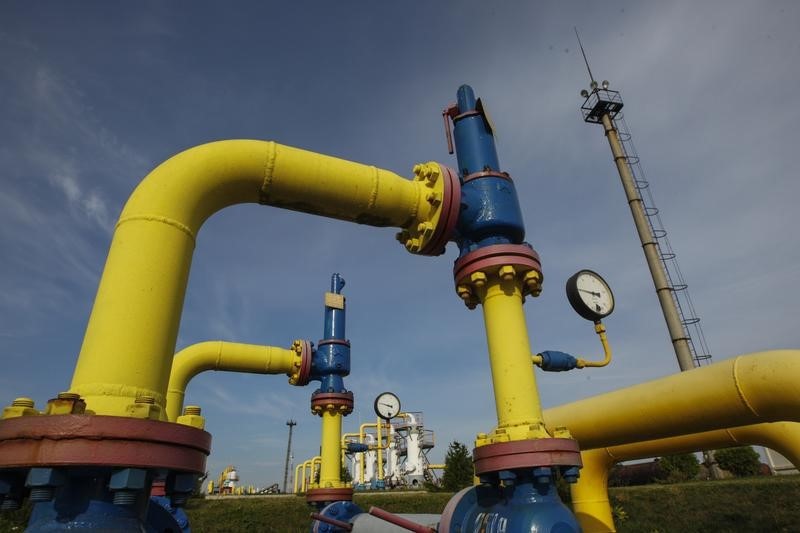By Valerie Volcovici and Stephanie Kelly
WASHINGTON/NEW YORK (Reuters) - A rapid-fire succession of setbacks for big energy pipelines in the United States this week has revealed an uncomfortable truth for the oil and gas industry: environmental activists and landowners opposed to projects have become good at blocking them in court.
The latest setbacks have increased the difficulty for developers of billions of dollars worth of pipeline projects in getting needed permits and community support. The oil industry says the pipelines are needed to expand oil and gas production and deliver it to fuel-hungry markets, but a rising chorus of critics argue they pose an unacceptable future risk to climate, air and water.
"Any company that is going to look to invest that kind of money into our infrastructure is really going to have to take a hard look," said Craig Stevens, spokesman for Grow America's Infrastructure Now, a coalition comprised mainly of chambers of commerce and energy associations.
The Trump administration has sought to accelerate permits and cut red tape for big-ticket energy projects such as the Dakota Access and Keystone XL pipelines. That effort has failed so far, and may even have made legal challenges easier, because rushed permitting paperwork has caught the eyes of judges.
A federal judge on Monday ordered the Dakota Access pipeline, the biggest duct moving oil out of the huge Bakken basin, to shut down and empty because the Army Corps of Engineers had failed to do an adequate environmental impact study. The same day, the U.S. Supreme Court blocked construction on the proposed Keystone XL line from Canada pending a deeper environmental review.
For years, both those pipelines have been targets of protests and lawsuits by climate, environment and indigenous rights activists.
On Sunday, Dominion Energy Inc (N:D) and Duke Energy Corp (N:DUK) decided to abandon the $8 billion Atlantic Coast Pipeline, meant to move West Virginia natural gas to East Coast markets, after a long delay to clear legal roadblocks almost doubled its estimated cost.
"What we have been seeing in the last couple of weeks is a shift in the importance of communities and landowners — and their voices in this process," said Greg Buppert, a lawyer for the Southern Environmental Law Center, which represented opponents of the Atlantic Coast Pipeline.
"Building energy infrastructure today is certainly more challenging than it was five, 10 or 15 years ago," said Joan Dreskin, chief counsel to the Interstate Natural Gas Association of America.
U.S. oil and gas lobby group the American Petroleum Institute is concerned about the "chilling effect" the recent decisions will have on the industry and investor community, said Robin Rorick, API vice president of midstream and industry operations.
RECIPE FOR A SETBACK
The unifying factors in all these setbacks were a highly motivated opposition and shoddy regulatory paperwork, according to Josh Price, senior analyst of energy and utilities at Height Capital Markets.
He added that both factors were, ironically, enabled by President Donald Trump's vocal efforts to boost the fossil fuels industries and downplay climate risks.
"You have environmental justice groups emboldened by the Trump administration’s stance on climate and really dedicating a lot of resources to halting projects through the courts," Price said. "The second part in this dynamic is some of the hasty work being done at the permitting agencies in the Trump administration. We’ve seen this time and time again, this effort to streamline projects has backfired."
A White House official did not immediately respond to a request for comment.
Trump has said oil and gas jobs are important to the economy and that the industry can thrive without causing significant environmental damage.
Investors in future will likely favor projects that expand on existing infrastructure and already have in place rights of way and environmental permits, said Jay Hatfield, portfolio manager of the New York-based InfraCap MLP ETF, a fund with a focus on energy pipeline operators.
"There are possible expansion opportunities when you can't do long-haul pipes... The cancellations of recent projects could make it more valuable to own those assets," he said.
In the coming days, the Trump administration is expected to finalize an overhaul of the National Environmental Protection Act, a bedrock environmental law guiding environmental reviews for major projects. The revisions will likely set time limits for environmental assessments and limiting the scope of reviews.
Environmental activists oppose the overhaul, but also figure that if it goes ahead it will only formalize legal risks for big energy infrastructure projects.
"There is no path to building new major crude oil pipelines anymore," said Jan Hasselman, the Earthjustice lawyer representing the Standing Rock Sioux tribe in its years-long battle to block Dakota Access. (This story corrects spelling of Joan Dreskin in para 9)
